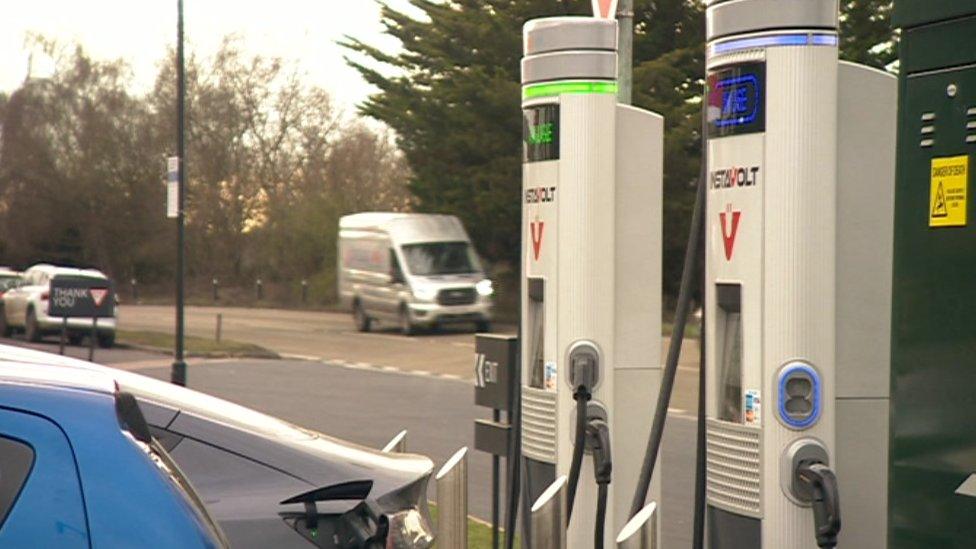Caravan parks 'can't cope' with rising numbers of electric cars
- Published
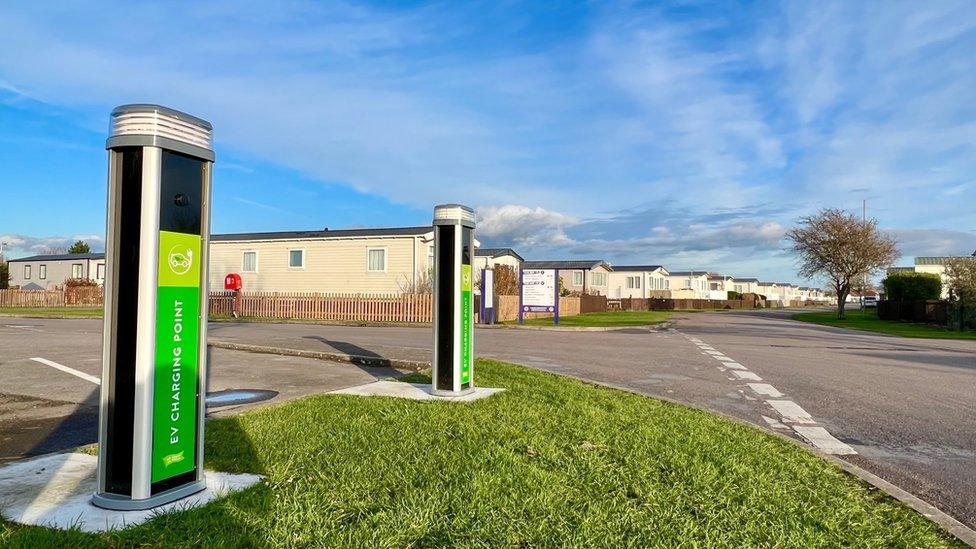
The current provision is one charging point for 300 homes at the caravan park
Holiday park owners have warned the government they will not be able to cope with the rising numbers of electric cars.
One Somerset park holds a thousand static caravans, but has only three electric charging points.
The owner has been told the National Grid can only support a few more, leaving most electric car drivers unable to recharge on site.
Alan House said: "The reality is it just won't work on a holiday park."
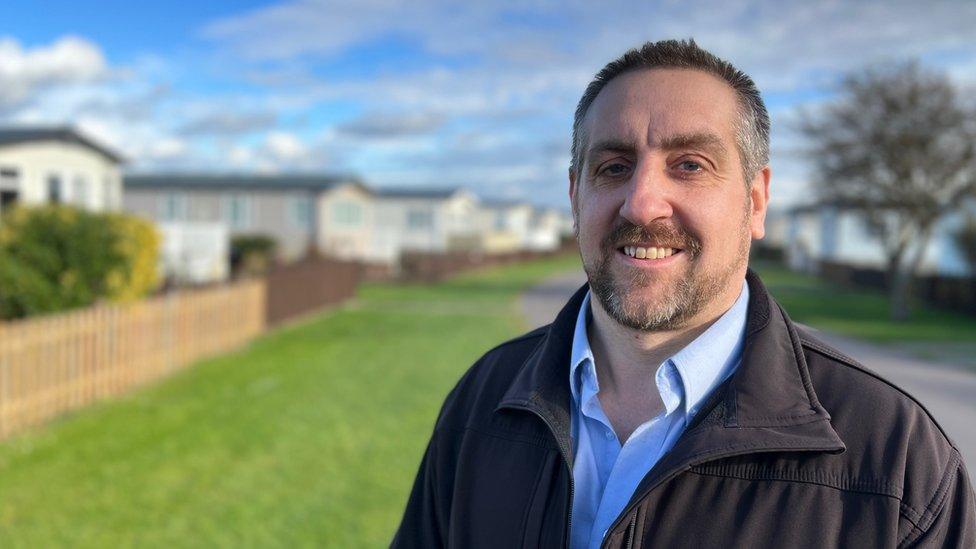
Alan House said the Grid would be unable to cope with mass charging at a caravan park site
Mr House's holiday park started in simpler times.
His grandfather ran a dairy farm near Brean Sands, just south of Weston-super-Mare.
In 1948 a local Scout group asked whether they could camp on his land, and Bert said yes.
Seventy years later, Unity Resort hosts 1,000 static caravans, 500 pitches for touring vans, camping fields and luxury lodges.
There is a golf course, a theme park with rollercoasters, soft play for the kids, the works.
And every caravan can hook-up to electricity for lights, heating, and the gadgets of modern life.
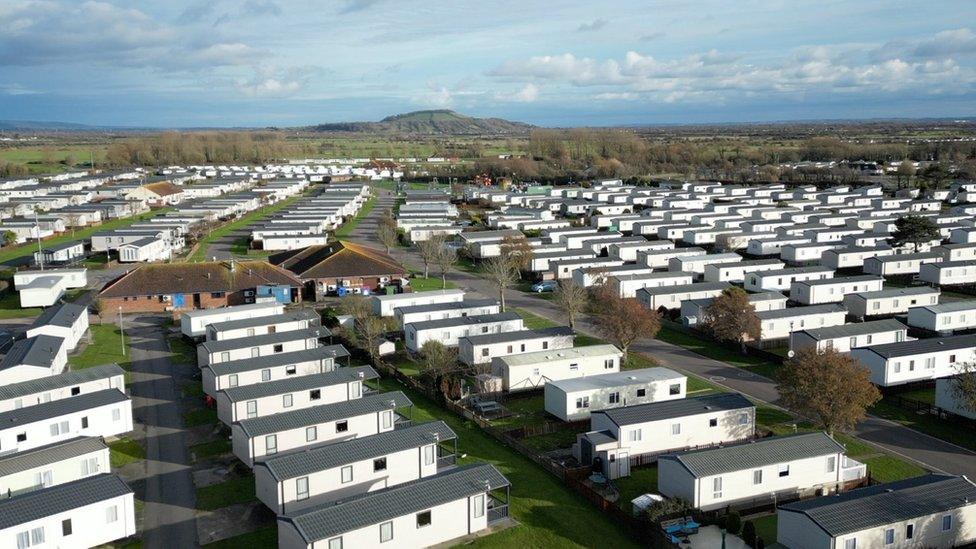
Connecting every caravan at Unity Resort would be a huge task
The major difference is electric cars are much hungrier.
To install hundreds of charging points would be a massive job, Mr House said.
"The whole park would have to be dug up, big new cables laid.
"The supply to the site from the Grid would need to be quadrupled, if not more.
"And holiday parks are in remote areas, at the end of the line.
"That's why people come. The grid couldn't cope with it."
The holiday park industry is lobbying government to take charging in remote areas seriously.
Martin Cox chairs the Holiday and Home Parks Association. His park is on the Dorset coast, near Bridport.
He has six chargers for 500 vans and has been told that is his limit.
"In our area there just aren't many places to charge an electric car.
"So instead of enjoying themselves and visiting local attractions, they will be driving around trying to find a charger."
Mr Cox compares the challenge of electric car chargers to the rural broadband battle.
For years Dorset and Somerset were left out of high speed broadband networks, because the resident population was small.
In the same way, there are fewer high speed electric charging points in these remote areas.
He said: "Government is going to have to invest in charging networks in our area."
They are making some progress. Dorset has recently received £1m funding from a government scheme aimed at improving electric vehicle (EV) charging infrastructure.
But other people argue there is no reason why caravan parks should have to provide electric car chargers.
After all, even a thoroughly modern site like Mr House's does not have a petrol station on site.
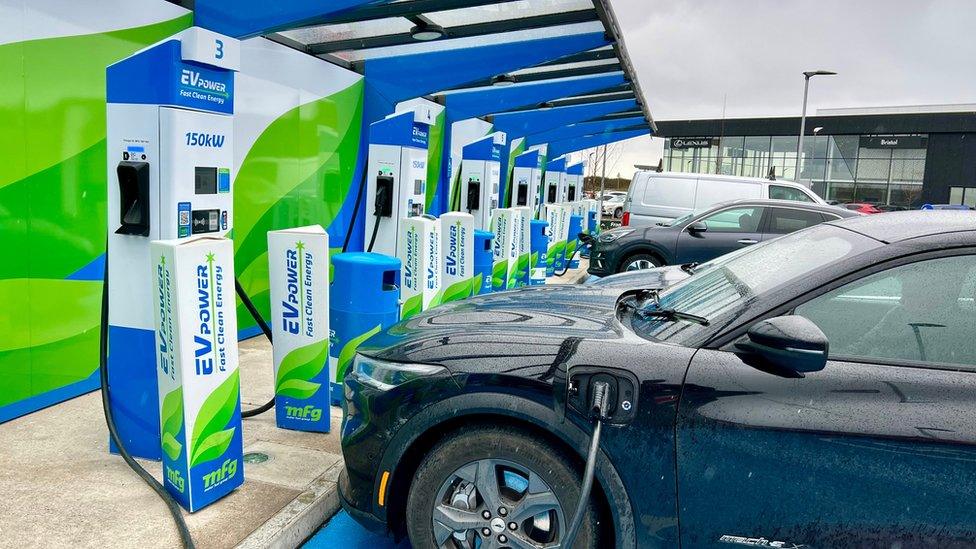
Some people argue there is no need for caravan parks to offer charging when forecourts are designed for the purpose
Simon Williams campaigns on electric car issues for the RAC.
He said: "People should go to an electric forecourt, much like a petrol station, and recharge quickly there."
He takes me to the kind of place he wants to see more of.
A line of eight modern chargers, all super fast offering 150 kilowatts.
In simple terms, you can add 100 miles to your range in about 15 minutes.
Today, there are 38,942 chargers in Britain. Of these, 7,426 are classed as rapid or ultra rapid, like the ones Mr Williams is showing me.
If the rollout continues, holiday makers will use these and not worry about charging up at the caravan sites.
But there is one snag. Rapid charging is expensive.
RAC research found electric motorists pay 75p/kWh at rapid chargers. That compares with just 34p plugging in at home.
And crucially 75p/kWh makes electric driving more expensive than petrol.
Compared with a petrol car running at 45 miles to the gallon, 75p/kWh electricity is equivalent to paying £2.30 per litre for petrol.
"The price has to come down," argues Mr Williams, "or we're going to put people off switching to electric cars".
The RAC has joined other electric motoring campaigners calling for action from the government.
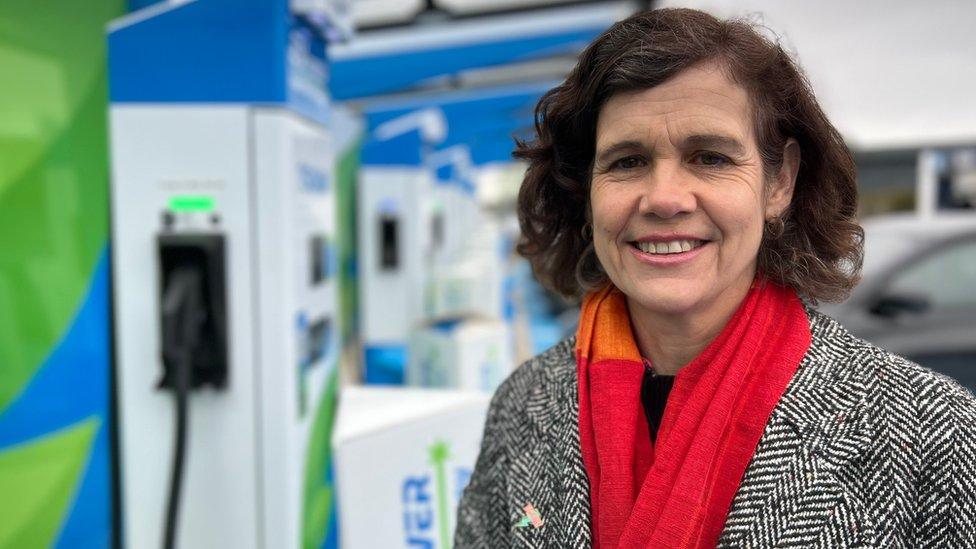
Mel Shufflebotham runs ZapMap that maps charging points across the UK
In Bristol a new tech start-up has mapped the UK's charging network.
They call it ZapMap and it enables drivers to find a charger, see whether it is working and available, and what price it charges.
Mel Shufflebotham runs ZapMap and is lobbying for a VAT cut for public chargers.
"If you charge at home you pay 5% VAT on the electricity," she said.
"But charge on the road at a place like this, and you pay 20%. We want them equalised at 5%."
Chancellor Jeremy Hunt will announce his Budget for 2023 on Wednesday 15 March.
If there is a VAT cut like this, it will be welcomed by electric car campaigners, but would be quite a surprise.

Follow BBC West on Facebook, external, Twitter, external and Instagram, external. Send your story ideas to: bristol@bbc.co.uk , external
Related topics
- Published26 January 2023
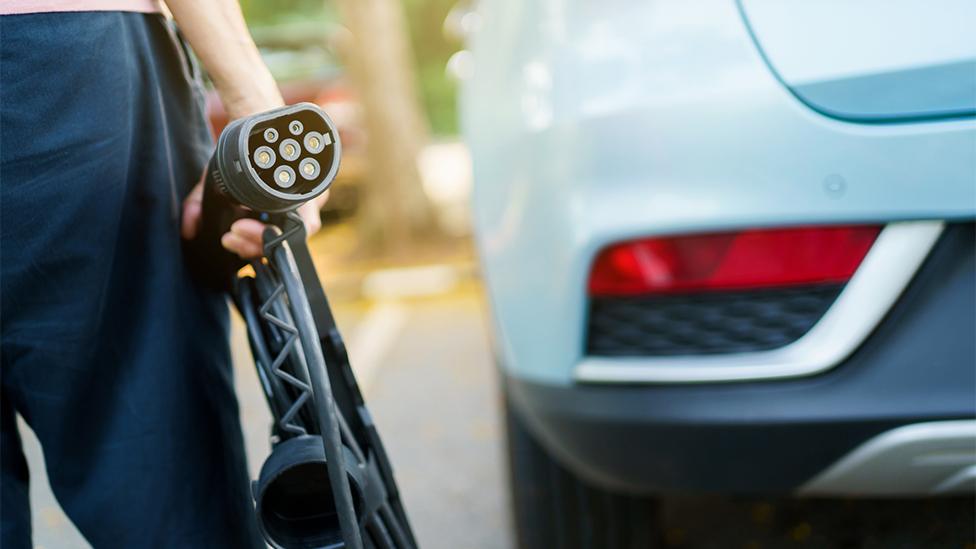
- Published6 March 2023
